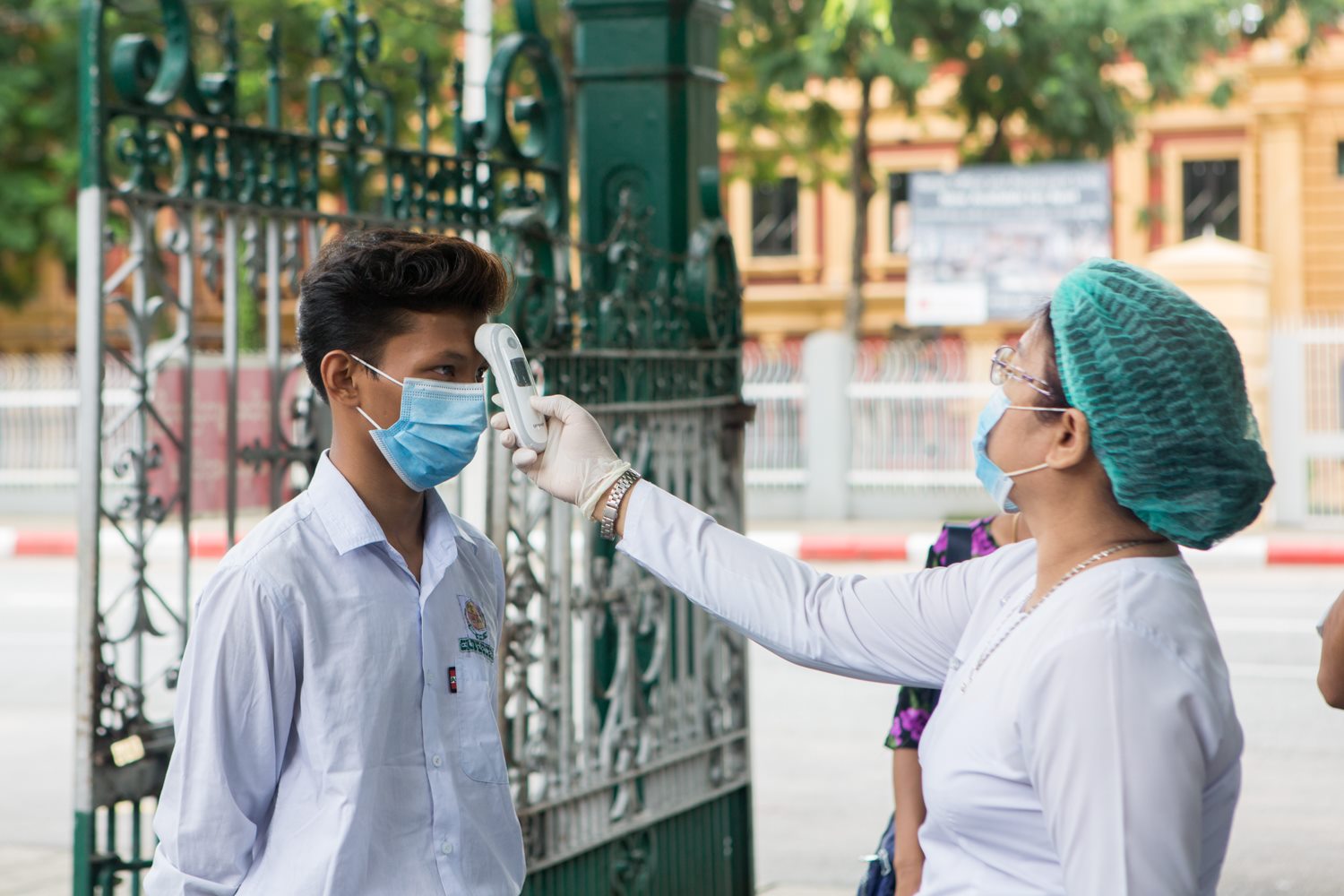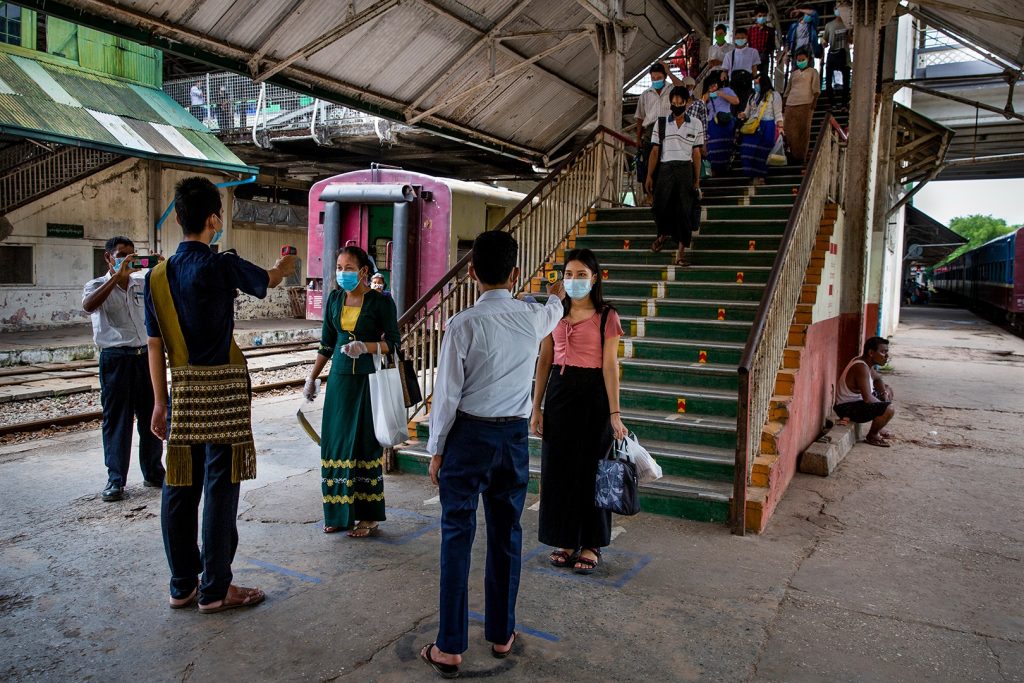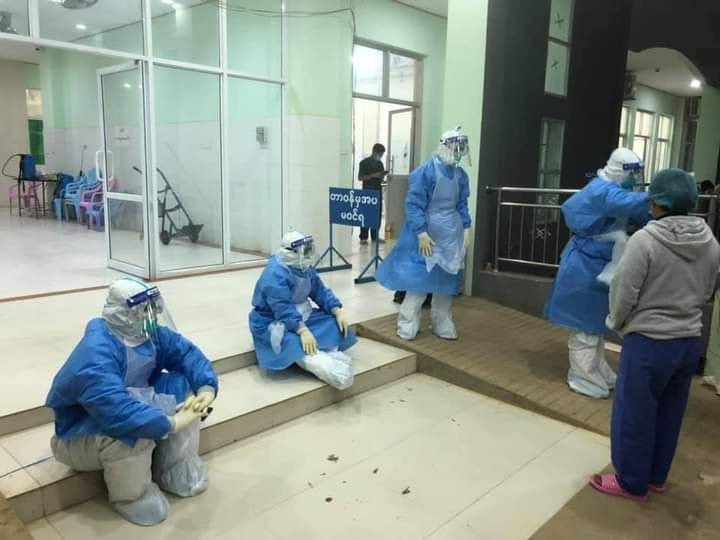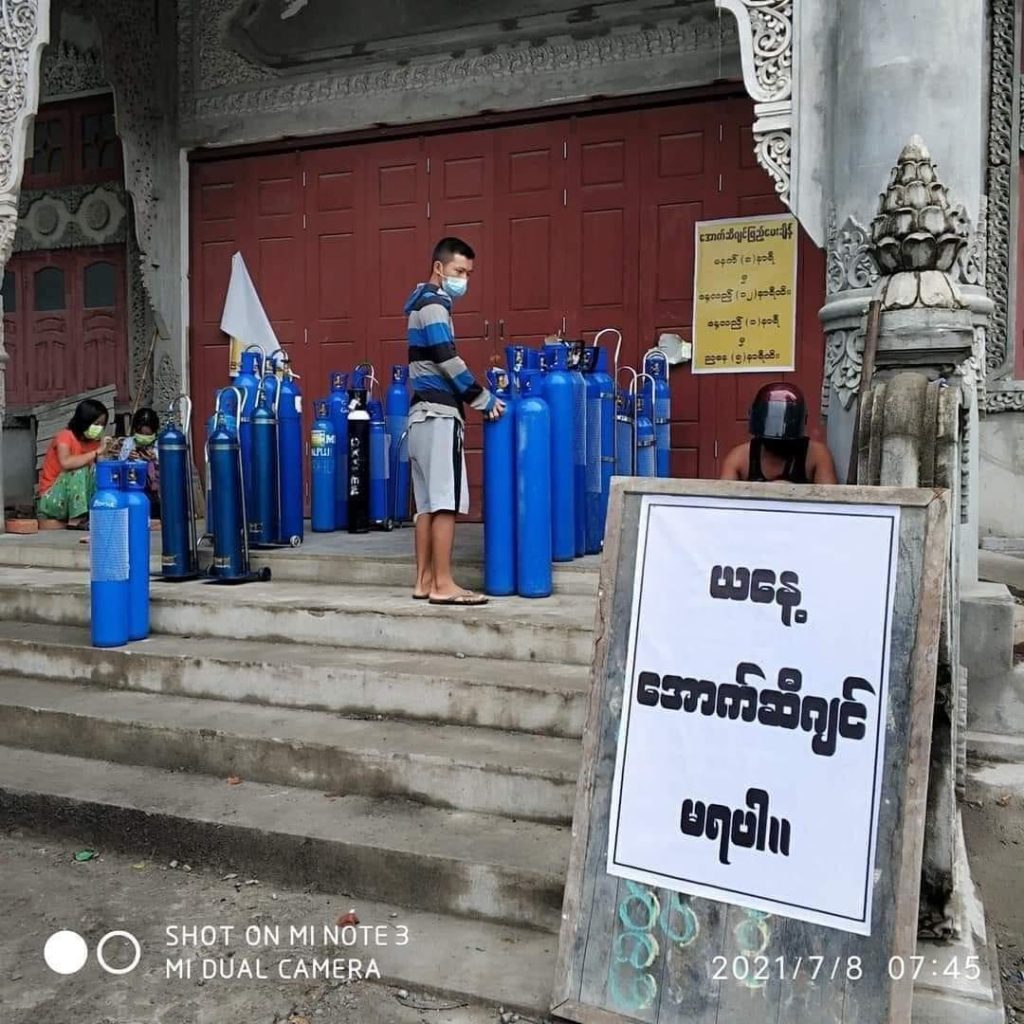
Introduction:
The last few years have transformed Myanmar landscape twice through the sudden outbreak of a global pandemic and secondly by the military coup in February 2021 — but these are not separate events, rather they are interwoven threads that knit up political reverberation like small earthquakes through miles of soil unsettling millions daily. This report looks at the ways in which a crippling coup and deadly global pandemic are creating disasters upon disasters, with devastating impacts on health, livelihoods and democracy in country.
Prelude to Crisis: Ground Zero of the Pandemic(What are the pandemic effects)
COVID-19 Initial Response:
Myanmar had already been confronting serious political and social tensions before the Covid-19 pandemic began to emerge. While the government’s original response to the pandemic had been met with doubt and ridicule. The absence of transparent data, and a failing health infrastructure did not go unnoticed by the international community.

Healthcare Strain: Hospitals reported shortages of beds, supplies, and medical personnel.
Public Trust: An atmosphere of distrust toward the government worsened, as many citizens hesitated to seek medical help for fear of government scrutiny.
“The pandemic unveiled the cracks in Myanmar’s healthcare system which, even before the virus, was on the brink of collapse.”

The Economic Fallout: As lockdowns and restrictions were implemented, the economy faced an unprecedented downturn.
Increased Poverty: Workers belonging to the informal sector were laid off, thus increasing poverty.
Scarcity of Resources: Basic needs became few and far between; food and medicine were highly unaffordable.
These conditions, combined, made things so bad for families that protests and demands for change began to rise.

The Military Coup(a New Era of Unrest)
The Takeover:
On 1 February 2021, the military seized government power, claiming election fraud in defiance of widespread condemnation and without substantial evidence. This threw Myanmar into its erstwhile frenzy of military rule and fired protests across the nation.
Civil Disobedience Movement: Healthcare workers, teachers, and civil servants participated in strikes, crippling essential services.
Violent Crackdown: The military used armed force against peaceful protesters, resulting in a humanitarian crisis.
“The coup has intensified fears among the populace, pushing many into exile or underground while others are continuing to fight for their rights.”
Public Health Impact:
With the military taking over the reins of the emergency, the situation as far as Covid-19 was concerned worsened.
COVID vaccine rollouts: Covid vaccine that had been slow were further delayed, and vulnerable populations were left in limbo.
Healthcare: Right to healthcare compromised amidst regime forces’ takeover of hospitals
In this climate of fear, misinformation around COVID spread like wildfire, perpetuating confusion and urgency.
Socioeconomic Impact:
Human Rights Violations: The Covid-19-coup interaction has caused grave human rights issues.
Suppression of Freedoms: Freedom of speech, assembly, and even the press is significantly curtailed.
Targeting Activists: Human rights defenders are being intimidated; some have become victims of violence.
Long-term Economic Impacts:
The effect of the coup and the pandemic hang over the future of Myanmar’s economy.
Foreign Investment: Economic stagnation, due to an uncertain political climate, is deterring foreign investment.
Increased Inequality: Differences are widening, with the marginal groups in a particularly difficult situation.
Resilience in the Face of Disaster:
Responses from Civil Society: Amidst this despair, the resilience of the people of Myanmar is not invisible. The response of civil society has been imperative in treading the complex path.
Community Support Networks: These are grassroots organizations actively investing in the needy’s health care, food, and shelter.
Advocacy and Awareness: The activists are still vocal on international grounds, voicing the cause of Myanmar to garner much-needed global support.
“In adversity, the spirit of the people of Myanmar finally shines through- standing up against oppression, fighting for rights.”
International Solidarity:
The reaction of the global community against this crisis has increased which leads to Imposing Sanctions.
Applying Diplomatic Pressure: Many countries have slammed sanctions on top military leaders of Myanmar to drive home the message on returning to democracy.
Aid Efforts: NGOS and relief bodies are marshaling their efforts to provide humanitarian aid, but their access is often limited.
Conclusion
In Myanmar, the tragic collision of Covid-19 and the military coup has had an impact that is nothing less than a perfect storm. The humanitarian crisis that has emerged stands tall as the people of this nation hark to resilience and spirit with hope. The need for attention on the international horizon is thus imperative-a unified voice stands in prime need of assistance against oppression to forge a better future.
Let us not forget the stories of resilience from Myanmar and continue to echo for their cause. As global citizens, how can we support them in this fight against democracy and a better living condition? This could be the meaningful first step towards change: engaging, learning, and sharing these stories.
To follow up on the situation in Myanmar, I hold your attention to the next update.

Leave a Reply